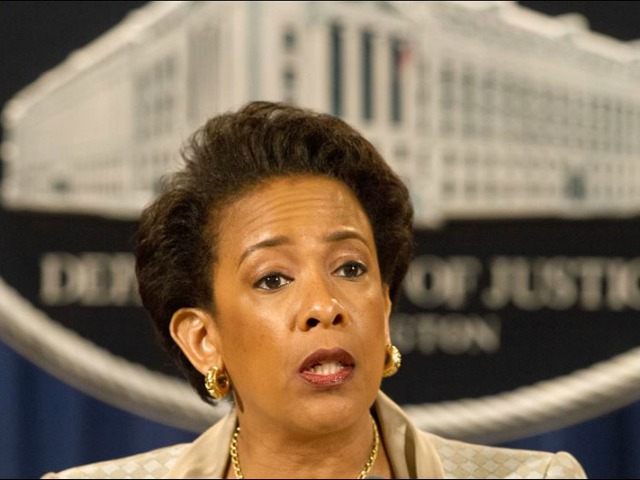Attorney General Loretta Lynch is reportedly planning to defer to the FBI in deciding whether or not to prosecute Hillary Clinton for mishandling classified information, corruption, and other potential transgressions.
The move, responding to bipartisan criticism of Lynch’s private meeting with former president Bill Clinton earlier this week, is being described by some sources as a recusal. However, it is not.
Lynch retains control of the case, effectively. She has merely, according to reports, decided whose recommendation to follow in making a decision — and has not formally ceded the power to decide. It is a non-recusal recusal.
All Lynch’s move actually does is punt the political responsibility for the decision to the FBI. Though the FBI prides itself on its professionalism and independence, there is no guarantee that it, too, will not be subject to political pressures, or agendas from within and without.
In an actual recusal, Lynch would have taken herself completely out of the case, handing it to a special counsel — a non-political appointee in the Department of Justice with a sterling reputation for integrity and not subject to the Obama administration’s politicized chain of command.
Lynch’s meeting with Bill Clinton was described as “personal,” but was entirely inappropriate — not only because his wife is under investigation and has yet to be questioned by the FBI, but also because the Clinton Foundation itself is also reportedly under scrutiny.
Lynch was also first appointed as U.S. Attorney for the Eastern District of New York by Clinton. At this point, there is no way to trust her — no matter who is advising her.
Joel B. Pollak is Senior Editor-at-Large at Breitbart News. His new book, See No Evil: 19 Hard Truths the Left Can’t Handle, will be published by Regnery on July 25 and is available for pre-order through Amazon. Follow him on Twitter at @joelpollak.

COMMENTS
Please let us know if you're having issues with commenting.